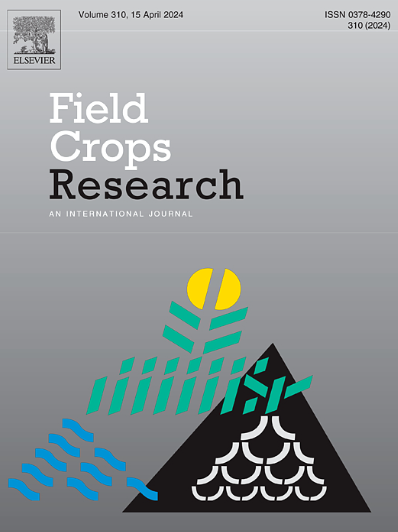Long-term diversified cropping promotes wheat yield and sustainability across contrasting climates: Evidence from China and Switzerland
IF 5.6
1区 农林科学
Q1 AGRONOMY
引用次数: 0
Abstract
Context
Crop diversification is extensively advocated to buffer against climate variability and extreme events to increase crop yields and agroecosystem services.
Objective
This study aimed to investigate the long-term implications of diversified cropping on wheat yield and soil quality in contrasting climate regions.
Methods
A five-decade field experiment in a temperate sub-maritime climate (Nyon, Switzerland) and a two-decade field experiment in a temperate continental climate (Luancheng, China) were carried out to investigate the effects of diversified cropping on wheat yield, yield stability and sustainability, and soil quality.
Results
The long-term diversified cropping increased wheat yield by 16.2% in the sub-maritime climate and 15.0% in the continental climate. In the sub-maritime climate, diversified cropping increased mean wheat yield stability and sustainability by 5.8% and 17.3%, respectively. In the continental climate, diversified cropping increased wheat yield stability by 3.7% and sustainability by 12.3%. Dynamic stability analysis confirmed that wheat yield under diversified cropping was higher in high-yielding years across climates. However, soil organic carbon (C) and soil quality showed minimal variation with long-term cropping systems and tillage practices.
Conclusions
Diversified cropping serves as a promising strategy for enhancing wheat yield stability and sustainability while maintaining soil quality.
Implications
This research fills a critical gap in understanding how diversified cropping systems perform under real-world conditions over decades under climate change, offering land managers actionable data for balancing crop productivity with soil quality in sustainable agricultural practices.
求助全文
约1分钟内获得全文
求助全文
来源期刊

Field Crops Research
农林科学-农艺学
CiteScore
9.60
自引率
12.10%
发文量
307
审稿时长
46 days
期刊介绍:
Field Crops Research is an international journal publishing scientific articles on:
√ experimental and modelling research at field, farm and landscape levels
on temperate and tropical crops and cropping systems,
with a focus on crop ecology and physiology, agronomy, and plant genetics and breeding.
 求助内容:
求助内容: 应助结果提醒方式:
应助结果提醒方式:


